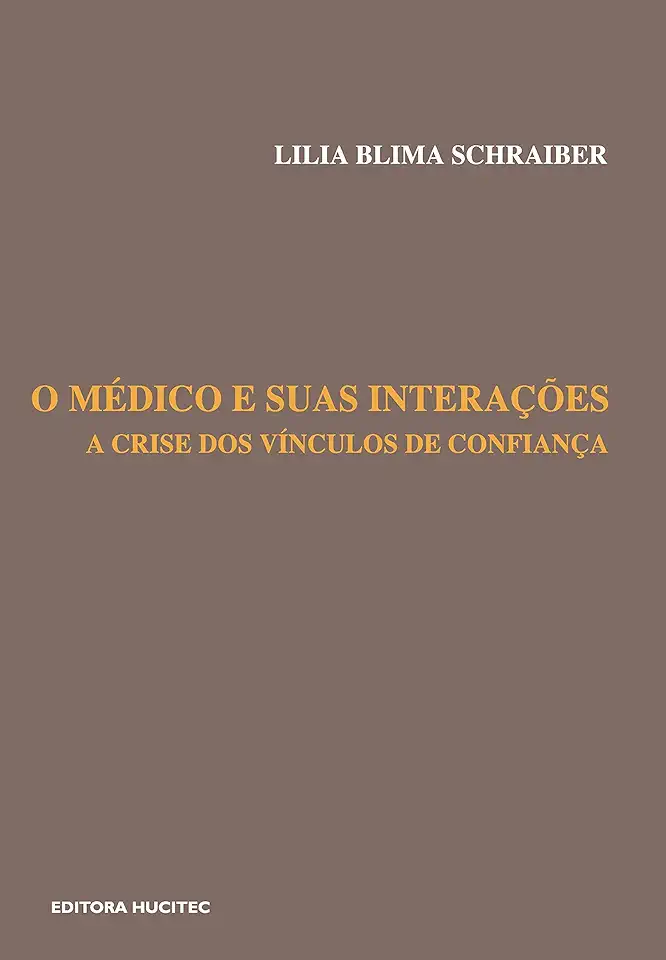
The Physician and His Interactions - The Crisis of Trust Bonds - Lilia Blima Schraiber
The Physician and His Interactions: The Crisis of Trust Bonds
In her book, "The Physician and His Interactions: The Crisis of Trust Bonds," Lilia Blima Schraiber delves into the complex and evolving relationship between physicians and their patients, exploring the factors that contribute to the erosion of trust in the medical profession. With meticulous research and insightful analysis, Schraiber presents a compelling argument for the urgent need to rebuild trust in the healthcare system.
A Profound Exploration of Trust in Healthcare
Schraiber begins by establishing the significance of trust in the patient-physician relationship, emphasizing its role in fostering effective communication, adherence to treatment plans, and overall patient well-being. Drawing upon real-life case studies and extensive interviews with both physicians and patients, she paints a vivid picture of the challenges that have led to the erosion of trust in recent years.
Factors Undermining Trust in Physicians
Schraiber identifies several key factors that have contributed to the decline in trust in physicians, including:
- The rise of medical malpractice lawsuits: The fear of legal repercussions has led many physicians to adopt a defensive and risk-averse approach to patient care, which can hinder open communication and erode trust.
- The increasing corporatization of healthcare: The shift towards profit-driven healthcare systems has led to concerns about the prioritization of financial incentives over patient welfare, further eroding trust in the medical profession.
- The information asymmetry between physicians and patients: The rapid advancement of medical knowledge has created a significant gap in understanding between physicians and patients, making it difficult for patients to make informed decisions about their care.
Rebuilding Trust: A Path Forward
Despite the challenges, Schraiber offers a path forward for rebuilding trust in the healthcare system. She proposes several strategies, including:
- Enhancing communication and transparency: Physicians should prioritize open and honest communication with patients, providing clear explanations of diagnoses, treatment options, and potential risks.
- Promoting patient involvement in decision-making: Patients should be actively involved in their own care, with physicians respecting their autonomy and preferences.
- Fostering a culture of patient-centered care: Healthcare systems should prioritize the well-being of patients above all else, ensuring that decisions are made in the best interests of the individual.
A Must-Read for Healthcare Professionals and Policymakers
"The Physician and His Interactions: The Crisis of Trust Bonds" is a thought-provoking and essential read for healthcare professionals, policymakers, and anyone interested in the future of healthcare. Schraiber's comprehensive analysis and practical recommendations provide a roadmap for rebuilding trust in the medical profession and ensuring the delivery of high-quality, patient-centered care.
Praise for "The Physician and His Interactions"
"A timely and important book that sheds light on the critical issue of trust in healthcare. Schraiber's insights are invaluable for anyone seeking to understand and address this crisis."
- Dr. Atul Gawande, surgeon, author, and public health researcher
"A comprehensive and well-researched examination of the factors that have eroded trust in physicians. Schraiber offers practical solutions that can help rebuild trust and improve patient care."
- Dr. Ezekiel Emanuel, oncologist, bioethicist, and former White House advisor
"A must-read for anyone concerned about the future of healthcare. Schraiber's analysis is insightful and her recommendations are essential for restoring trust in the medical profession."
- Dr. David Blumenthal, physician, health policy expert, and former National Coordinator for Health Information Technology